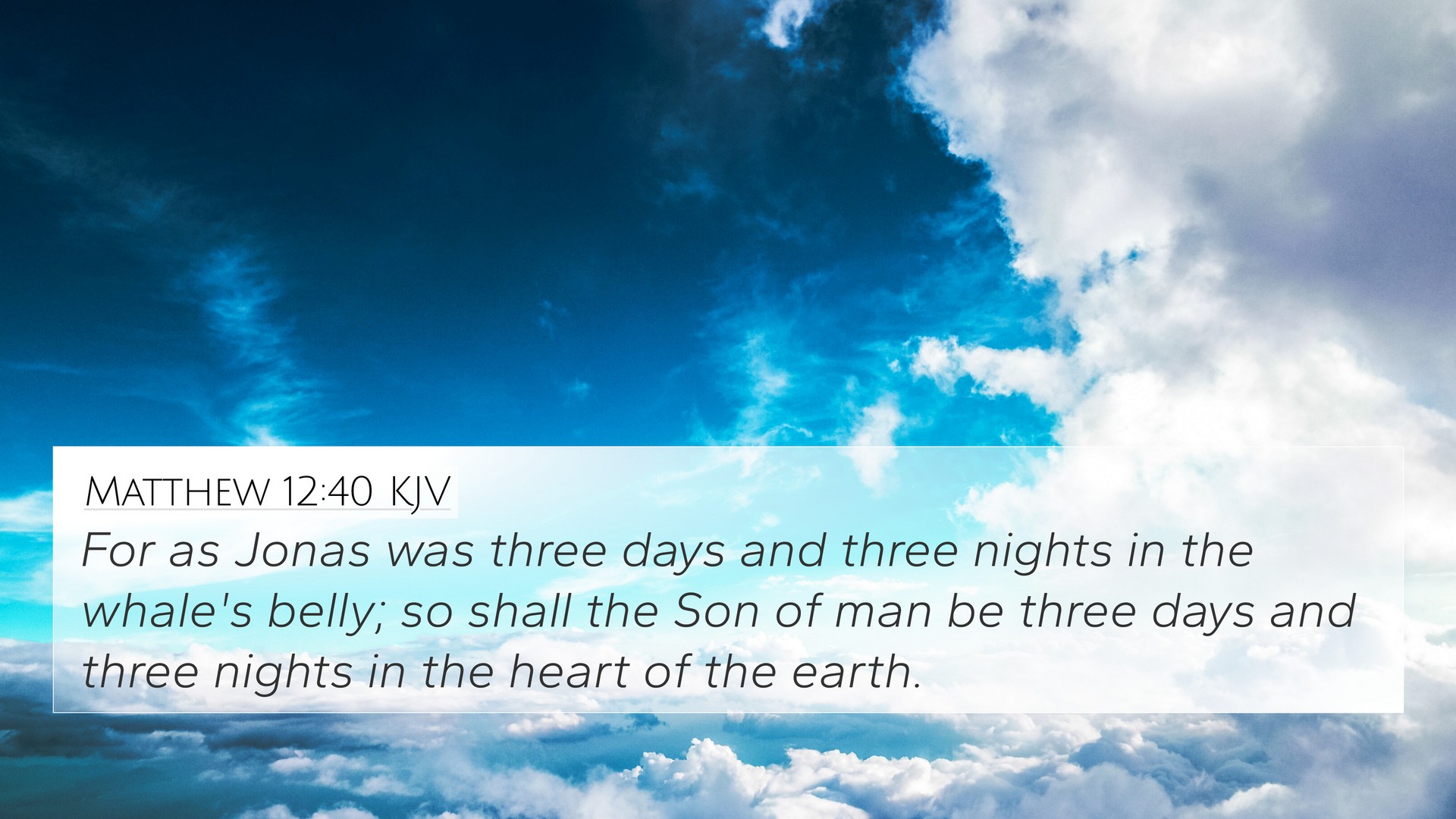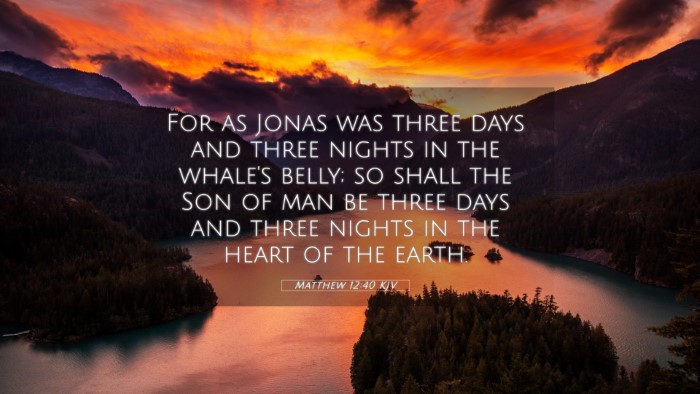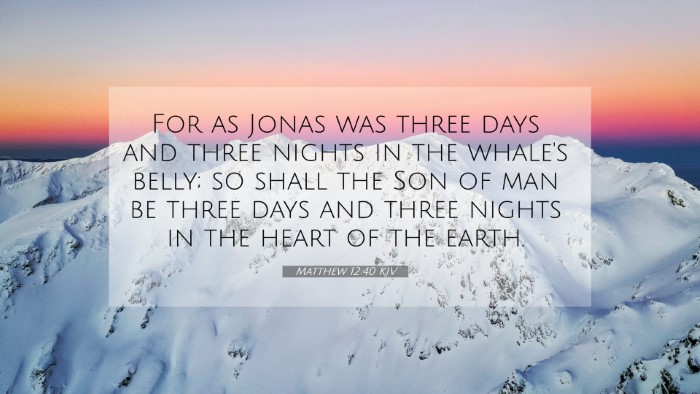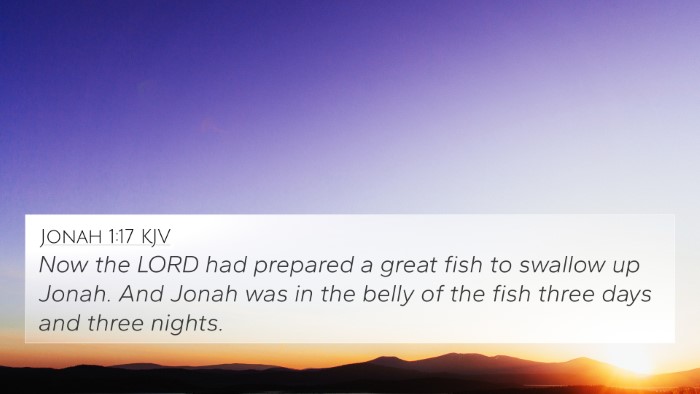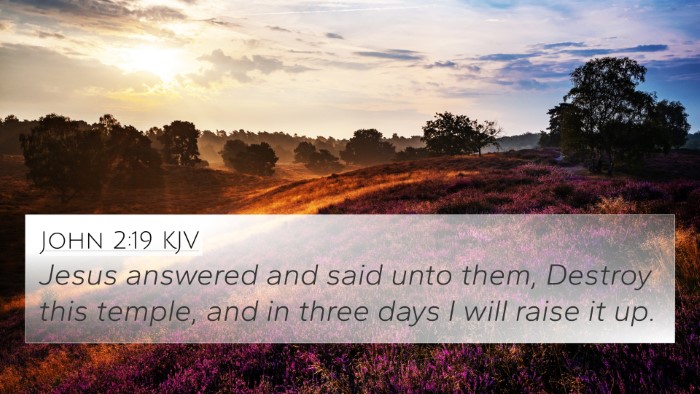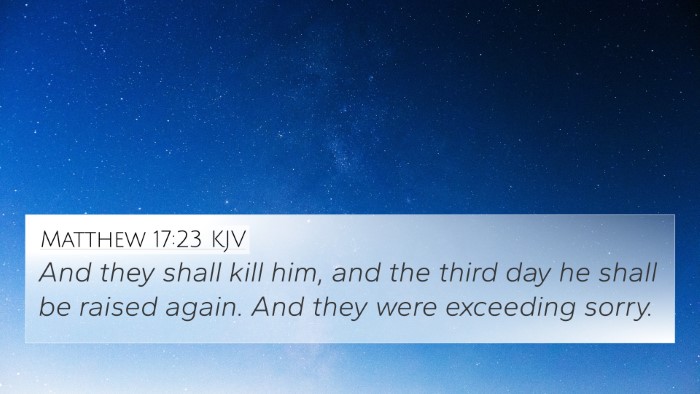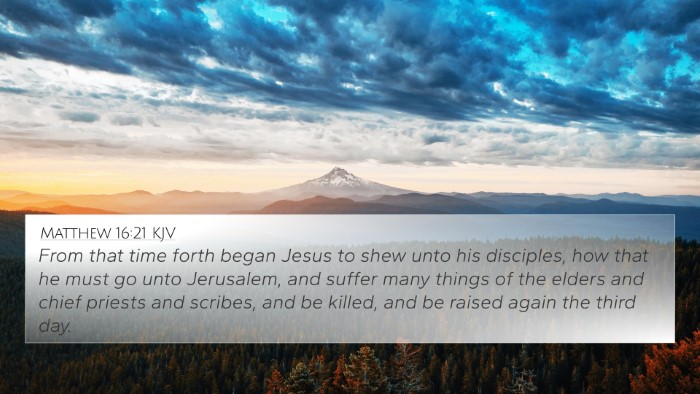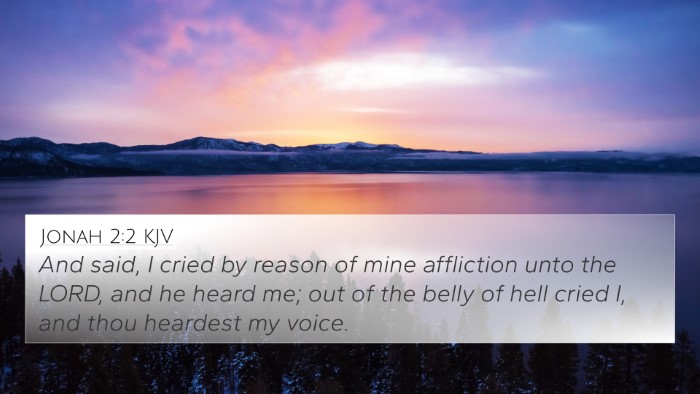Matthew 12:40 - Verse Context
This verse states: "For as Jonas was three days and three nights in the whale's belly; so shall the Son of man be three days and three nights in the heart of the earth." This proclamation by Jesus ties the experience of Jonah to His own impending death, burial, and resurrection, offering a prophetic glimpse into His Time in the grave.
Commentary Overview
This verse captures a significant aspect of Jesus' mission and the fulfillment of Old Testament prophecies. In analyzing this scripture, various public domain commentaries provide insights into its deeper meanings and connections:
- Matthew Henry's Commentary:
Matthew Henry emphasizes the typological relationship between Jonah and Christ. Just as Jonah spent three days in the belly of the fish, so Jesus would spend three days in the grave, demonstrating the reality of death before resurrection. Furthermore, Henry notes that Jonah's deliverance signifies hope and foreshadows Christ's victory over death.
- Albert Barnes' Notes:
Barnes points out that this statement serves as a sign to the people of Israel about the legitimacy of Jesus as the Messiah. He draws parallels between the repentance of Nineveh due to Jonah's preaching and the need for Israel to recognize their disobedience and turn back to God through Christ's resurrection.
- Adam Clarke's Commentary:
Clarke elaborates on the cultural significance of Jonah's experience, noting that it was a miraculous act of preservation from death. He understands this as not only a predictive statement about the duration of Christ's entombment but also highlights the spiritual resurrection that believers experience through faith in Him.
Connections Between Bible Verses
This verse opens the door to a greater understanding of Biblical themes through cross-referencing. Here are the significant connections:
- Jonah 1:17: "Now the LORD had prepared a great fish to swallow up Jonah. And Jonah was in the belly of the fish three days and three nights." - This verse directly discusses Jonah's experience, mirroring the timeframe Jesus mentions.
- Luke 11:30: "For as Jonah was a sign unto the Ninevites, so shall also the Son of man be to this generation." - Here, Jesus explicitly ties His ministry to Jonah's prophetic role.
- Matthew 27:63: "Saying, Sir, we remember that that deceiver said, while he was yet alive, After three days I will rise again." - This highlights the faith in His resurrection, echoing Jesus’ words in Matthew 12:40.
- Acts 2:31: "He seeing this before spake of the resurrection of Christ, that his soul was not left in hell, neither his flesh did see corruption." - Peter connects Jesus’ resurrection to prophetic statements, affirming the truth of Jesus' words.
- 1 Corinthians 15:4: "And that he was buried, and that he rose again the third day according to the scriptures." - This references the fulfillment of scripture regarding Jesus' death and resurrection.
- Romans 6:4: "Therefore we are buried with him by baptism into death: that like as Christ was raised up from the dead by the glory of the Father, even so we also should walk in newness of life." - This reflects the transformative power of Jesus' resurrection.
- Colossians 2:12: "Buried with him in baptism, wherein also ye are risen with him through the faith of the operation of God, who hath raised him from the dead." - reinforces the thematic connection of death and resurrection with believer's baptism.
Thematic Bible Verse Connections
The themes arising from Matthew 12:40 can be further explored through the lens of prophecy, fulfillment, and resurrection. These concepts are essential for understanding the Christian faith.
- Prophetic Patterns: The chronological parallel between Jonah's time in the fish and Jesus' three days in the tomb illustrates a pattern of how God uses history to prefigure greater redemptive acts.
- Divine Redemption: Just as Jonah was delivered from death, Christ’s resurrection offers believers hope for eternal life, hence connecting Old Testament references with New Testament teachings.
- Spiritual Awakening: Both accounts challenge human nature toward repentance and faith, as seen in the Ninevites' response to Jonah and the call for faith in Jesus’ resurrection.
Conclusion
Matthew 12:40 presents a profound statement that serves as a prophecy and a reminder of God's power over death. It invites readers to explore inter-Biblical dialogues that affirm Jesus as the promised Messiah, linking His sacrifice to the symbol of Jonah’s story.
This verse is not only a part of the narrative of Christ’s life but also a central point in comparative Bible verse analysis, encouraging deeper study and reflection on the transformative journey that faith in Jesus unlocks.
